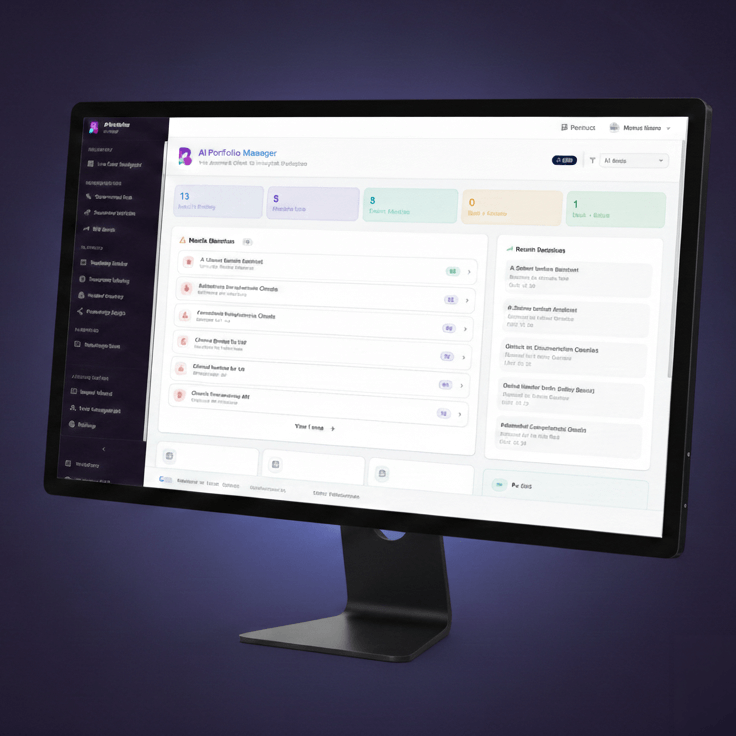A paradigm shift is currently underway in healthcare, with increasing recognition of the critical role that social determinants of health (SDoH) play in shaping health outcomes.
From economic status and educational opportunities to neighborhood conditions and social structures, these social determinants significantly influence the health of individuals and communities. As we aim to improve population health outcomes, the power of data in revealing, understanding, and addressing SDoH is emerging as a game-changer.
This blog discusses the transformative role of data in tackling SDoH and enhancing population health management.
Unpacking Social Determinants of Health
Social determinants of health are the conditions in which people are born, grow, live, work, and age, significantly affecting a wide range of health, functioning, and quality-of-life outcomes. These determinants encompass diverse factors, from income, education, and occupation to social support, access to healthcare, and the physical environment. The World Health Organization (WHO) identifies these factors as key to understanding the health disparities that exist within and between populations.
For instance, access to safe housing, quality education, nutritious food, clean air, and recreational spaces is linked to better health outcomes. On the other hand, people living in socioeconomically deprived environments often face greater health risks and worse health outcomes, leading to health inequalities. Therefore, addressing SDoH is fundamental to ensuring overall population health.
The Power of Data in Understanding SDoH
In the quest to address SDoH, data emerges as a powerful tool. As we navigate the complex landscape of public health, it is becoming increasingly evident that our health outcomes are deeply intertwined with our social circumstances. In this quest to comprehensively address SDoH, data emerges as an indomitable ally.
A vast array of healthcare data, gathered from diverse sources such as electronic health records (EHRs), population surveys, census reports, and even social media platforms, provides a rich tapestry of insight into patients' social contexts. When properly analyzed, this data holds the potential to uncover patterns and trends, shedding light on the intricate links between social determinants and health outcomes.
For instance, according to the Centers for Disease Control and Prevention (CDC), educational disparities have been associated with a multitude of health problems, including higher rates of tobacco use, lower life expectancy, and a higher likelihood of heart disease. Data analysis could reveal a similar correlation between low educational attainment and higher instances of chronic diseases such as diabetes or hypertension.
Armed with this insight, healthcare providers, policymakers, and stakeholders can devise targeted interventions, focusing their efforts on improving education as a pathway to enhancing health outcomes. This data-driven approach provides a foundation for the implementation of personalized, preventative health measures that address the root causes of health disparities rather than just treating symptoms.
Data's potential in the realm of SDoH is transformative. As we continue to harness this power, we are poised to make significant strides in public health, contributing to a more equitable and healthier world for all.
Leveraging Technology to Unleash Data Potential
Technology plays a central role in maximizing the potential of data to address SDoH. Advanced technologies like big data analytics, artificial intelligence (AI), and machine learning enable the processing of vast, complex datasets, extracting actionable insights that can drive effective interventions.
Predictive analytics, a form of AI, is particularly valuable. By leveraging machine learning algorithms, predictive analytics can identify individuals or communities at heightened risk of adverse health outcomes due to social determinants. These predictions can inform proactive, preventative interventions, enhancing overall health outcomes.
Illuminating Case Studies: Data-Driven SDoH Initiatives
Several healthcare organizations are already harnessing the power of data and technology to address SDoH, showcasing the practical application and benefits of this approach.
For instance, Health Leads, a US-based non-profit organization, uses data to identify social needs among patients. Using a robust data platform, they screen patients for various SDoH like food insecurity, housing instability, and transportation needs, then connect these patients with relevant community resources. This data-driven approach ensures that social determinants are not overlooked in healthcare delivery, thereby promoting better health outcomes.
Another noteworthy example is ProMedica, a nonprofit healthcare system in Ohio. ProMedica has integrated SDoH screening into its electronic health record (EHR) system, a move that has significantly enhanced its approach to patient care. By coupling clinical data with social determinant data, healthcare providers gain a holistic understanding of patient needs, leading to tailored care strategies that address not just the symptoms but also the root causes of health issues.
Navigating Challenges and Seizing Opportunities
While the potential of data in addressing SDoH is indisputable, several hurdles must be navigated to fully exploit its benefits. Data privacy, consent, security, and quality, as well as interoperability issues, are key challenges that need to be meticulously addressed to enable meaningful data analysis and interpretation.
Data privacy concerns pose a significant barrier. As pointed out in this Harvard Business Review article, healthcare providers must ensure the privacy of sensitive health and social data while balancing the need for transparency and collaboration. Moreover, securing patient consent for data sharing, especially for sensitive social determinants data, is critical.
Data quality and interoperability also play a crucial role. As highlighted by a report published by the National Academy of Medicine, ensuring data from disparate sources is consistent, accurate, and can be seamlessly integrated is essential for data to be effectively used.
Addressing these challenges requires a multi-pronged approach that encompasses robust data governance policies, advanced data management. Health Affairs highlights that enhancing data literacy among healthcare providers is crucial for maximizing the value derived from data. This is echoed by organizations like Robert Wood Johnson Foundation (RWJF), which to date, has allocated $10 million to support advocacy and training aimed at elevating more nuanced, disaggregated data analysis and storytelling to increase more timely, accurate, and comprehensive data collection.
Despite these challenges, the opportunities presented by data are transformative. With the rapid advancements in technology, our capabilities to collect, analyze, and act upon data related to SDoH continue to expand. As pointed out by a report by McKinsey & Company, digital technology is poised to revolutionize healthcare, driving more effective interventions, reducing health disparities, and enhancing population health outcomes. In fact, venture funding for digital health companies reached a record $29.1 billion in 2021, with more than $0.5 billion in funding for digital health companies targeting social determinants of health.
The path to fully leveraging data in the context of SDoH may be complex, but it holds immense promise. But as we continue to navigate these complexities, we inch closer to a more equitable and healthier world for all.
Looking Ahead: Data as a Cornerstone in Addressing SDoH
In a world where data is growing exponentially, its value in addressing SDoH is irrefutable. Harnessing data to understand and act upon social determinants represents a significant shift in healthcare — moving from a reactive, disease-focused model to a proactive, health-promoting one.
As healthcare providers and stakeholders increasingly embrace data-driven approaches, we can expect to see more targeted and effective strategies to tackle SDoH. This data-driven approach will not only enhance individual health outcomes but also foster healthier communities, advancing population health.
Conclusion
The role of data in addressing SDoH is both transformative and critical. It allows us to move beyond treating illnesses to promoting health, from focusing on individuals to enhancing population health. The synergistic relationship between socioeconomic, environmental, and lifestyle factors accentuates the need for a holistic, data-informed perspective to tackle health disparities. Utilizing the revolutionary power of technology, especially the expansive capabilities of data analytics, enables us to unearth patterns and distill actionable insights from a multitude of variables.
Real-world applications of data-driven strategies, exemplified by organizations like Health Leads and ProMedica, fuel optimism about the pivotal role data can play in transforming our collective healthcare journey.
As organizations fortify their data strategies and navigate these challenges, they can anticipate a future of healthcare that transitions from a disease-centered to a value-based care model. This shift emphasizes proactive measures to promote health and wellness at individual and community levels, integrating both medical and social determinants of health, placing data as a cornerstone in their efforts.
To propel towards a future that embodies inclusivity, comprehension, and robust health, download the white paper Uncovering Hidden Data Roadblocks of Cloud and AI Adoption in Healthcare to discover how to overcome barriers and harness the power of data and technology in transforming care delivery and patient outcomes.




